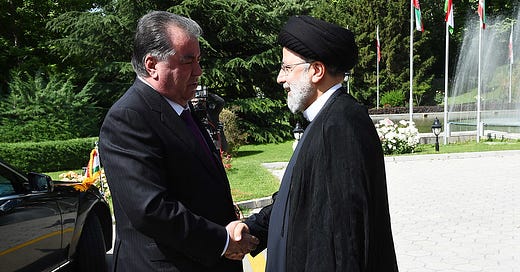In Central Asia, Iran has friends
Tehran faces profound hostility from many of its immediate neighbours, as well as from the collective West. Central Asian governments, meanwhile, are cultivating warm economic and diplomatic ties.
Iran is at daggers drawn with Israel and hemmed in by the West’s economic sanctions.
Tensions between Tehran and several Gulf nations are in a semi-permanent simmer.
And earlier this year, Iran risked igniting a regional conflict by firing missiles at militant camps in Pakistan.
Relations between Tehran and its neighbours to the north, in Central Asia, mea…
Keep reading with a 7-day free trial
Subscribe to Havli - A Central Asia Substack to keep reading this post and get 7 days of free access to the full post archives.




